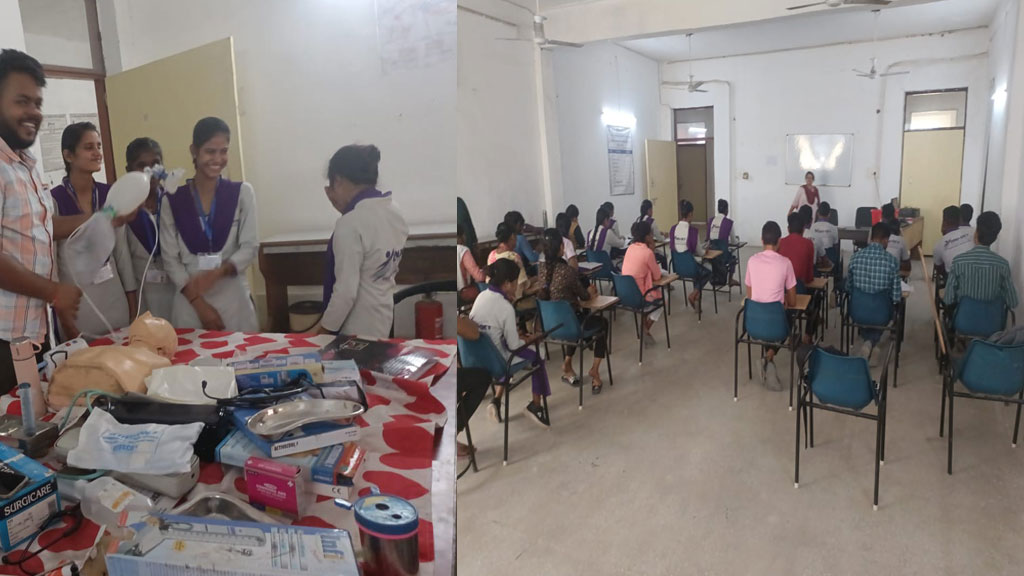Introduction:
Corporate Social Responsibility (CSR) has evolved into a strategic imperative for companies seeking to make a positive impact on society. Within the vast landscape of CSR initiatives, education emerges as a transformative force, capable of shaping and empowering futures. This article delves into the pivotal role of education in CSR, exploring how companies can contribute to sustainable development by investing in the knowledge and skills that empower individuals and communities.
Section 1: Shifting Paradigms in Corporate Social Responsibility:
Discuss the changing dynamics of CSR, emphasizing the paradigm shift from philanthropy to more strategic and sustainable initiatives. Illustrate the growing acknowledgment that education is a cornerstone for fostering lasting positive change.
Section 2: Education as a Catalyst for Social Transformation:
Examine the intrinsic value of education in bringing about social transformation. Discuss how education is not only a means of acquiring knowledge but also a powerful catalyst for empowerment, poverty alleviation, and community development.
Subsection 2.1: Breaking the Cycle of Poverty:
Explore how education breaks the cycle of poverty by providing individuals with the knowledge and skills needed to secure better economic opportunities. Highlight success stories where education has been a transformative force in lifting communities out of poverty.
Subsection 2.2: Empowering Marginalized Communities:
Discuss the role of education in empowering marginalized communities, emphasizing its ability to bridge societal gaps and create a more inclusive and equitable society.
Section 3: Aligning Education with Corporate Values and Competencies:
Highlight the importance of aligning educational initiatives with a company’s core values and competencies. Discuss how companies can leverage their expertise to design programs that not only benefit communities but also align with the company’s business goals.
Subsection 3.1: Industry-Relevant Education:
Explore the concept of industry-relevant education within CSR initiatives. Discuss how companies can contribute to the development of a skilled workforce by tailoring educational programs to meet the demands of the job market.
Subsection 3.2: Fostering Innovation through Education:
Illustrate how education contributes to fostering innovation within communities. Showcase examples of companies collaborating with educational institutions to promote research, development, and entrepreneurship.
Section 4: The Ripple Effect of Educational CSR Initiatives:
Examine the broader impact of educational CSR initiatives beyond the immediate beneficiaries. Discuss the ripple effect that occurs when individuals equipped with education become agents of positive change within their communities.
Subsection 4.1: Multi-Generational Impact:
Highlight how educational empowerment has a multi-generational impact, as educated individuals pass on knowledge, values, and opportunities to future generations, creating a sustained positive cycle.
Subsection 4.2: Community Upliftment and Social Capital:
Discuss how education contributes to community upliftment and the creation of social capital. Explore instances where educated individuals actively participate in community development, fostering a sense of collective responsibility.
Section 5: Measuring Success: Key Performance Indicators in Educational CSR:
Examine the metrics and key performance indicators (KPIs) that companies can use to measure the success of their educational CSR initiatives. Discuss the importance of both quantitative and qualitative measures in evaluating impact.
Subsection 5.1: Quantitative Metrics (e.g., Graduation Rates, Employment):
Discuss the significance of quantitative metrics in gauging the success of educational programs, including graduation rates, employment statistics, and other tangible outcomes.
Subsection 5.2: Qualitative Insights (e.g., Personal Stories, Community Feedback):
Highlight the value of qualitative insights in capturing the transformative aspects of education. Showcase personal stories and community feedback as essential components of evaluating the holistic impact of CSR initiatives.
Conclusion:
Summarize the integral role of education in Corporate Social Responsibility, emphasizing its power to empower individuals, transform communities, and contribute to a more sustainable and equitable future. Encourage companies to view education not only as a social responsibility but as a strategic investment in empowering futures.
- By admin

